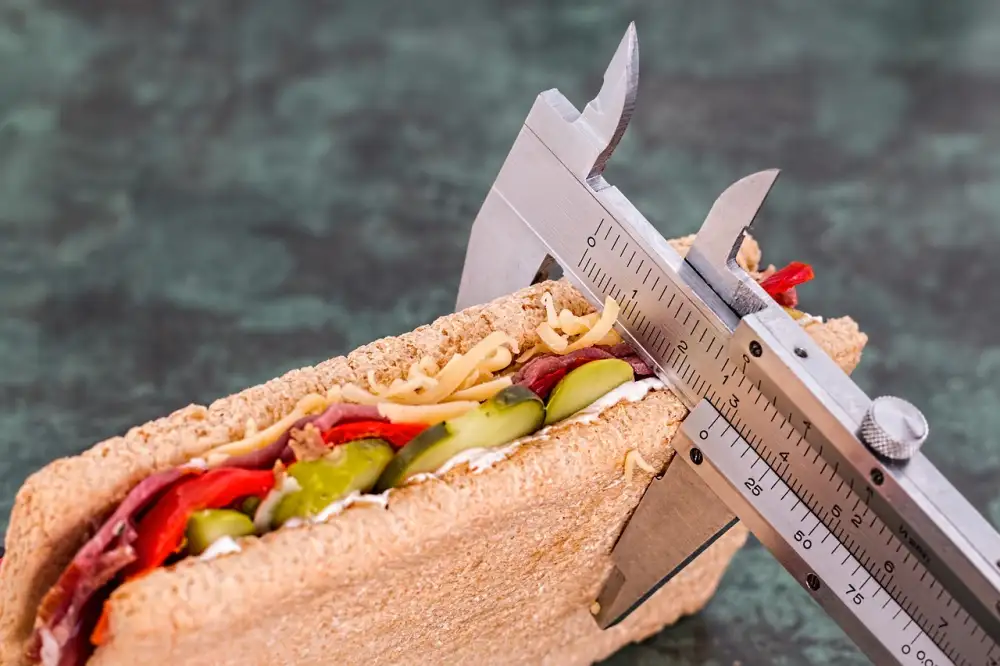Delicious and Nutritious Weight Loss Meals: Fueling Your Health Journey

- Importance of a Healthy Diet for Weight Loss
- Key Components of Weight Loss Meals
- Incorporating Lean Proteins in Weight Loss Meals
- Including Fiber-Rich Foods for Satiety and Digestive Health
- Emphasizing Whole Grains for Energy and Nutrient Density
- Incorporating Healthy Fats for Satiety and Nutritional Balance
- Utilizing Portion Control Techniques for Effective Weight Loss
- Incorporating Fruits and Vegetables for Essential Nutrients and Fiber
- Meal Prep Tips for Successful Weight Loss
- Delicious and Nutritious Weight Loss Meal Ideas
When embarking on a weight loss journey, one of the key factors to consider is your diet. While exercise plays an important role, it's what you put into your body that truly fuels your progress. This is where weight loss meals come into play. These meals are specifically designed to provide you with the necessary nutrients while keeping your calorie intake in check. By making smart choices and incorporating the right ingredients, you can enjoy delicious and nutritious meals that support your health goals. In this article, we will explore the importance of a healthy diet for weight loss and discover key components that make up these meals. So let's dive in and learn how to fuel our health journey through delicious and nutritious weight loss meals.
Importance of a Healthy Diet for Weight Loss
The importance of a healthy diet for weight loss cannot be overstated. While exercise is important for overall health, it is the food we consume that has the greatest impact on our weight. A healthy diet provides the necessary nutrients and energy to fuel our bodies while promoting weight loss. By choosing nutrient-dense foods and avoiding empty calories, we can achieve sustainable weight loss and improve our overall well-being. It is essential to prioritize whole foods, such as fruits, vegetables, lean proteins, whole grains, and healthy fats, as they provide essential vitamins, minerals, and fiber. Additionally, a healthy diet helps regulate blood sugar levels and reduces the risk of chronic diseases associated with obesity. Ultimately, adopting a healthy diet is not just about losing weight but also about nourishing our bodies and establishing long-term habits for a healthier lifestyle.
Key Components of Weight Loss Meals
Key Components of Weight Loss Meals: When it comes to weight loss, it's important to focus on meals that are not only delicious but also packed with nutrients. A well-balanced weight loss meal should include lean proteins, fiber-rich foods, whole grains, healthy fats, and a variety of fruits and vegetables. These components work together to provide satiety, energy, and essential nutrients while promoting weight loss. By incorporating these key components into your meals, you can fuel your health journey and achieve your weight loss goals.
Incorporating Lean Proteins in Weight Loss Meals
Incorporating lean proteins in weight loss meals is essential for fueling your health journey. Protein helps to build and repair tissues, supports muscle growth, and keeps you feeling full and satisfied. Opt for lean sources such as skinless chicken breast, turkey, fish, tofu, beans, and lentils. These options are low in calories and high in nutrients, making them perfect additions to any weight loss meal. Remember to balance your plate with vegetables and whole grains for a well-rounded and nutritious meal.
Including Fiber-Rich Foods for Satiety and Digestive Health
Including fiber-rich foods in your weight loss meals is essential for promoting satiety and maintaining digestive health. Fiber adds bulk to your meals, making you feel fuller for longer periods of time. This can help prevent overeating and unnecessary snacking. Additionally, fiber aids in digestion by promoting regular bowel movements and preventing constipation. Incorporate foods such as whole grains, legumes, fruits, and vegetables into your meals to ensure an adequate intake of fiber.
Emphasizing Whole Grains for Energy and Nutrient Density
Emphasizing whole grains in your weight loss meals is essential for providing sustained energy and maximizing nutrient density. Whole grains, such as quinoa, brown rice, and whole wheat bread, are rich in fiber, vitamins, minerals, and antioxidants. These nutrients not only support overall health but also promote feelings of fullness and satisfaction. By choosing whole grains over refined grains, you can fuel your body with long-lasting energy while receiving the necessary nutrients for a successful weight loss journey.
Incorporating Healthy Fats for Satiety and Nutritional Balance
Incorporating healthy fats into your weight loss meals is essential for both satiety and nutritional balance. Contrary to popular belief, not all fats are bad for you. In fact, certain types of fats can actually aid in weight loss and promote overall health. Healthy fats, such as those found in avocados, nuts, seeds, and olive oil, provide a feeling of fullness and help regulate blood sugar levels. They also play a crucial role in the absorption of vitamins and minerals. Be sure to include these nutritious sources of fat in your meals to support your weight loss journey.
Utilizing Portion Control Techniques for Effective Weight Loss
Utilizing portion control techniques is crucial for effective weight loss. By managing the size of your meals, you can control your calorie intake and prevent overeating. One simple technique is to use smaller plates and bowls to create the illusion of a full plate. Another method is to measure your food portions using measuring cups or a food scale. Additionally, practicing mindful eating by chewing slowly and savoring each bite can help you feel satisfied with smaller amounts of food. Remember, portion control is key to achieving your weight loss goals in a healthy and sustainable way.
Incorporating Fruits and Vegetables for Essential Nutrients and Fiber
Incorporating fruits and vegetables into your weight loss meals is essential for providing your body with the necessary nutrients and fiber it needs. Fruits and vegetables are low in calories but high in vitamins, minerals, and antioxidants. They also provide a good amount of dietary fiber, which aids in digestion and helps you feel fuller for longer. Including a variety of colorful fruits and vegetables in your meals not only adds flavor and texture but also ensures that you are getting a wide range of essential nutrients to support your overall health.
Meal Prep Tips for Successful Weight Loss
1. Plan your meals in advance: Take some time each week to plan out your meals and create a shopping list. This will help you stay organized and make healthier choices.
2. Cook in bulk: Prepare larger portions of healthy recipes and divide them into individual meal containers. This will save you time during the week and prevent you from reaching for unhealthy options when you're busy or tired.
3. Use portion control containers: Invest in portion control containers to ensure that you are eating the right amount of food. These containers can help you avoid overeating and keep track of your calorie intake.
4. Pre-cut fruits and vegetables: Wash, chop, and store fruits and vegetables in separate containers so they are easily accessible when you need a quick snack or want to add them to your meals.
5. Cook once, eat twice: Make use of leftovers by incorporating them into future meals. For example, roast extra chicken breasts for dinner one night, then use the leftovers for a salad or wrap the next day.
6. Freeze individual portions: If you have extra food that won't be consumed within a few days, freeze it in individual portions for future meals. This way, you'll always have a healthy option on hand when time is limited.
7. Stay organized: Label your meal containers with the date and contents to avoid confusion or waste. Keep an inventory of what's in your fridge or freezer so that nothing goes bad or gets forgotten.
By following these meal prep tips, you can set yourself up for success on your weight loss journey while saving time and ensuring that nutritious options are readily available throughout the week.
Delicious and Nutritious Weight Loss Meal Ideas
1. Grilled chicken breast with roasted vegetables: Season a skinless chicken breast with herbs and spices, then grill it to perfection. Serve alongside a colorful mix of roasted vegetables like bell peppers, zucchini, and carrots for a satisfying and low-calorie meal.
2. Quinoa salad with mixed greens: Cook quinoa according to package instructions and let it cool. Toss it with a variety of mixed greens, cherry tomatoes, cucumber slices, and a light vinaigrette dressing for a refreshing and nutrient-packed salad.
3. Baked salmon with steamed broccoli: Place a salmon fillet on a baking sheet lined with parchment paper. Season it with lemon juice, garlic powder, and dill before baking until cooked through. Serve with steamed broccoli for an omega-3 rich meal that's both filling and delicious.
4. Lentil soup with whole grain bread: Prepare a hearty lentil soup by simmering lentils, diced vegetables, vegetable broth, and spices together until tender. Pair it with a slice of whole grain bread for added fiber and satisfaction.
5. Turkey lettuce wraps: Cook ground turkey in a skillet with onions, garlic, and your choice of seasonings. Spoon the mixture onto large lettuce leaves and top with diced tomatoes, avocado slices, and a drizzle of low-sodium soy sauce or hot sauce for an easy-to-make yet flavorful meal.
Remember to customize these ideas to fit your taste preferences while keeping them balanced in terms of macronutrients. Enjoy your weight loss journey!
In conclusion, making weight loss meals a sustainable lifestyle choice is essential for long-term success. By incorporating lean proteins, fiber-rich foods, whole grains, healthy fats, and plenty of fruits and vegetables into your meals, you can fuel your health journey while enjoying delicious and nutritious food. Remember to practice portion control and utilize meal prep techniques to stay on track. With dedication and consistency, you can achieve your weight loss goals and maintain a healthy lifestyle for years to come.
Published: 13. 01. 2024
Category: Health



